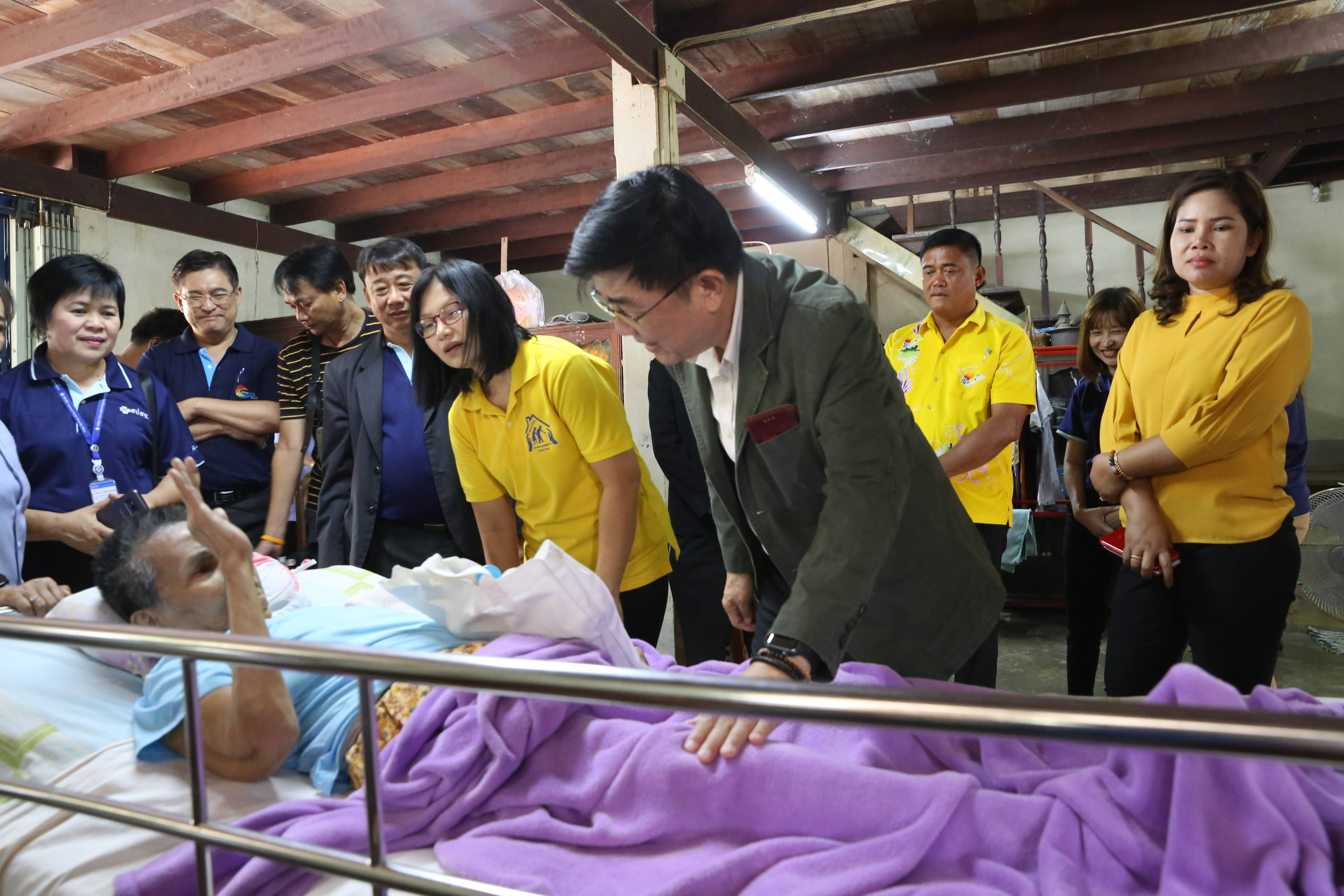
- Home
- DescriptionNews
Long-Term Care program: Thailand’s preparation for entering an aged society

Long-Term Care program: Thailand’s preparation for entering an aged society
How to ensure the accessibility and quality of eldercare is a mainstream debate among the healthcare profession and policymakers in Thailand.
That's because our nation is aging fast, as a result of advancing healthcare services and the introduction of universal healthcare coverage in 2002. More than 99% of the Thai population can access free healthcare services, which means they tend to have a longer life expectancy.
We have entered an aging society since 2005, when one by ten of the Thai population is over 60 years old. Now we're approaching an "aged society" in which the elderly will account for one by five of the Thai population by next year.
Though the increasing number of senior citizens is seen as a healthcare burden, it also shows us an opportunity to explore new social innovation that enhance the living quality of older people.
In 2016, the National Health Security Office (NHSO) piloted the Long-Term Care (LTC) program to encourage multi-sectoral collaboration for community-based eldercare targeting dependent elderly persons and ones living with disabilities and chronic diseases.
It is also our effort to prepare local administrative organizations and local communities for dealing with an upcoming aged society.
Since the lunch of the LTC program, the government has allocated an annual budget to the NHSO, who then distributes the fund to local administrative organizations.
We encourage the leaders and staff of the organizations to propose their idea for community-based eldercare that needs financial backup from the LTC program. They can collaborate their project with the Public Health Ministry's hospital staff, who can provide eldercare guidance and health know-how.
Our goal is to see local government organizations having the capacity to lead eldercare at the community level in the future. They have the advantage of living close to local communities. Therefore, they know about the local population and specific health problems, making them find out the right solutions that fit local contexts.
The LTC program supports different activities, including the local government organizations' projects to improve the safety of the living environment for older adults and hire local drivers to take bedridden elderly patients to hospitals.
Many local government organizations also collaborate with state-owned hospital staff in training "caregivers" in the communities.
Caregivers are mainly recruited from the village health volunteers --- the local community members who have worked with and reported the health-relevant incidents to the hospital staff.
Thorugh the training, they added up skills and knowledge about eldercare that make them being able to perform basic health services such as health checkups and medication management. Some of them may be selected and trained as "care managers" who lead the caregivers and plan for strategic eldercare within their communities.
This movement has improved the quality of life for aging people while integrating them into the communities. It has also reduced overcrowding at the hospitals as older patients can access home care instead of traveling the distance to see doctors.
Moreover, we have developed the data system in which the information of the elderly provided by local government organizations is pulled into the database shared between the NHSO and Public Health Ministry.
This information will help us analyze the situation of the elderly on the ground and decide on the plan and policy for eldercare in the future. Caregivers and care managers will be valuable resources for us as they are trained to fill up the data in the computer system.
The LTC program has been successful so far as the number of its participants increase year by year.
In 2019, the program provided care to 219,518 dependent elderly persons, increased from 80,826 in 2016.
It has gained more recognition as local administrative organizations participating in the program increased from 1,752 to 6,003 in the same period. Health units taking part in the program grew from 889 to 917.
Our statistic shows that the areas with strong leaders of local administrative organizations make quick progress in eldercare improvement.
We expect to see more players joining the LTC program in the near future. It does not just for the healthy lives of the elderly.
But it also for the preparation of local government organizations and different players to enter the aged society, in which innovative ideas and multi-sectoral collaboration are essential for guaranteeing the wellbeing of all generation in the society.
Sakchai Kanjanawatana
Secretary-General of Thailand's Nation Health Security Office (NHSO)
1ุ6 Sep 2020
Secretary-General of Thailand's Nation Health Security Office (NHSO)
1ุ6 Sep 2020

